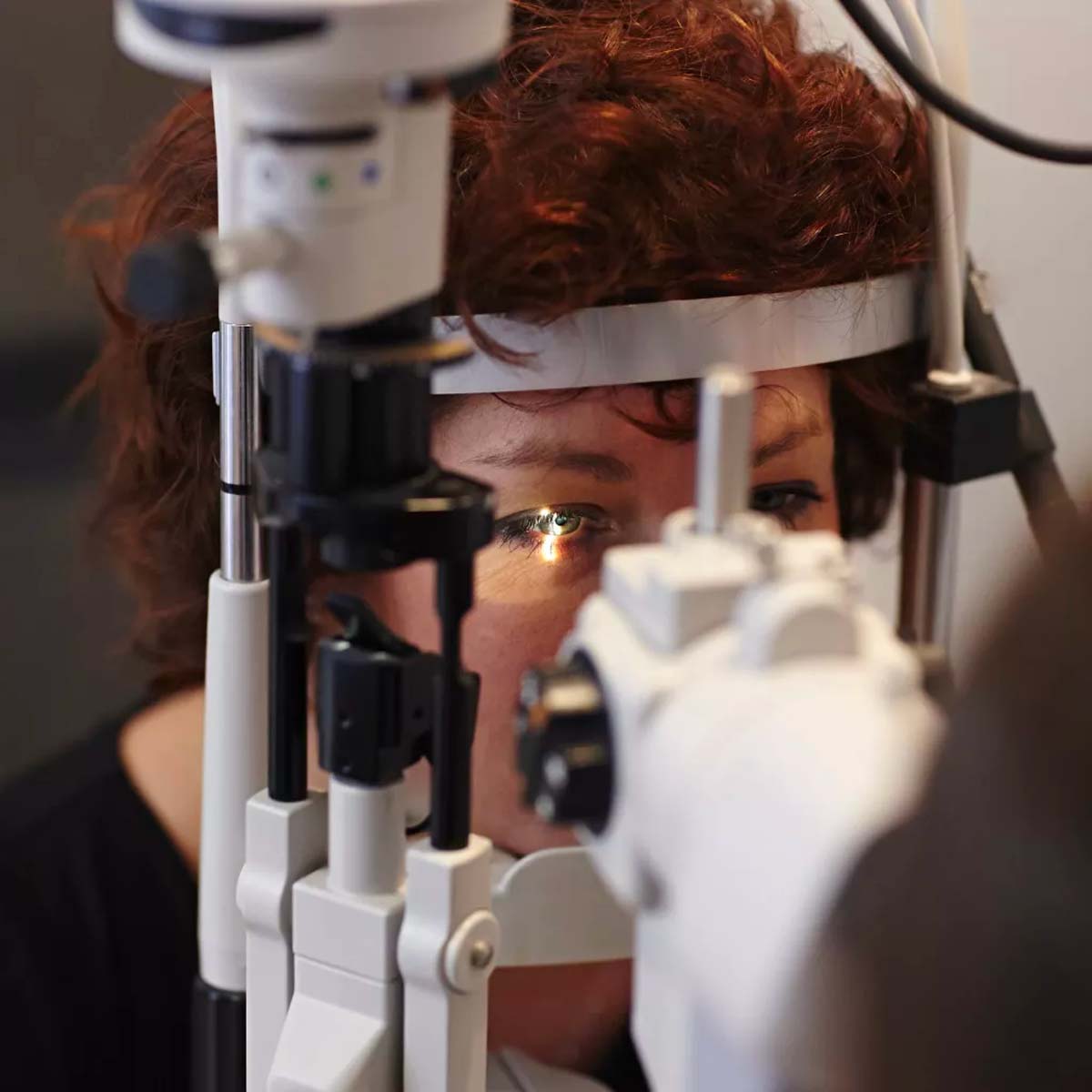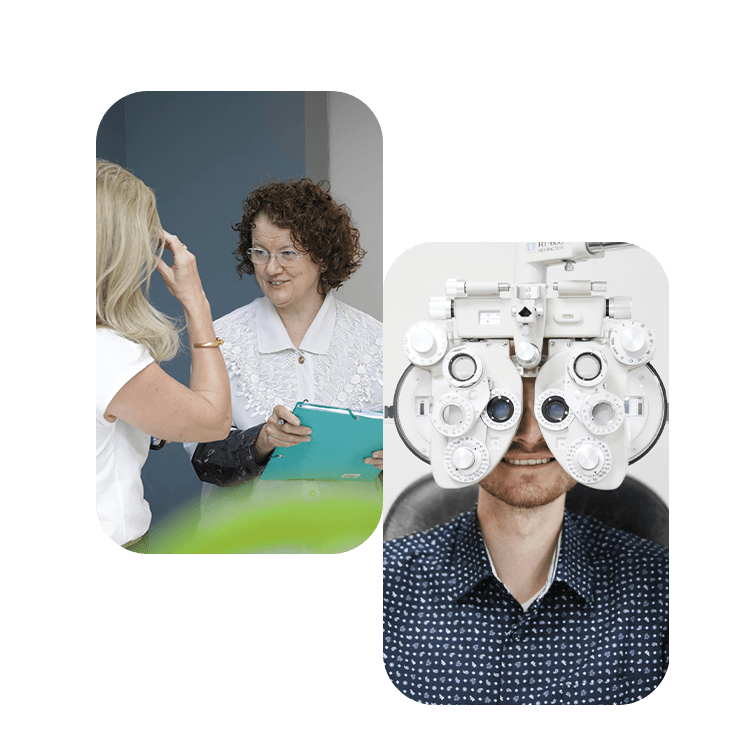Mon - Sat: 8:00 AM - 6:00 PM
Sunday: CLOSED
Eye Care Designed for You
We provide the highest level of eye care in the safest possible environment for your family.
Make an Appointment
Online Schedule

Amblyopia in Adults
Amblyopia, commonly known as lazy eye, is not exclusively a childhood condition.
Amblyopia in adults can often be traced to undetected or uncorrected visual impairment from childhood. In this condition, the weaker or lazy eye usually wanders inward or outward. It can cause difficulties in reading, concentration and depth perception, affecting a person’s quality of life.
In children, their growing brains have the adaptability needed to correct the vision problems caused by lazy eye. But fixing amblyopia in adults presents unique challenges and requires a nuanced approach. If you suspect you or someone you love might be living with amblyopia, it’s crucial to consult with an eye care professional who is well-versed in advanced diagnostic techniques and therapeutic strategies for addressing amblyopia. Through proactive assessment and treatment, achieving a clearer, more balanced vision is possible.
Connect with our doctors specialising in lazy eye treatment in Dubai now.





Amblyopia in Adults - Frequently Asked Questions
What Causes a Lazy Eye in Adults?
In adults, amblyopia can develop due to a drooping eyelid, cataract or tumour that prevents light from entering an eye. A difference in the refractive error between the two eyes can also cause this condition.
Strabismus, the misalignment of two eyes, can also cause amblyopia. When a patient has this condition, their brain sees objects in double. This annoys the brain, prompting it to suppress one image for comfort and correction.
Eventually, the brain will ‘turn off’ the weak eye, causing amblyopia or lazy eye.
Amblyopia is also hereditary. If a patient was born with this condition but was undiagnosed in childhood, the symptoms may become more severe or pronounced during adulthood. An ophthalmologist will come up with the diagnosis after a comprehensive eye exam.
What Are the Symptoms of Amblyopia?
Aside from one eye wandering inward or outward, other symptoms of amblyopia in adults include the following:
- Poor depth perception
- Eyes that do not appear to work together
- Frequent head tilting, eye squinting or shutting
- Frequent eye strain, eye fatigue and headaches
How Is Lazy Eye Detected in Adults?
Amblyopia is usually detected during a comprehensive eye exam. The specialist may conduct additional tests to evaluate the patient’s binocular function, visual acuity and skills to diagnose lazy eye.
This reason highlights the importance of undergoing an annual comprehensive eye exam.
Can a Lazy Eye Be Fixed on an Older Person?
Yes. In the past, it was believed amblyopia was only treatable in children 10 years and below. Treatment is more effective when it is given to patients at an early age.
However, the right lazy eye treatment for adults can help older patients overcome this vision condition. It is possible to retrain a person’s visual system, restore binocular vision and correct amblyopia at any age
How Is Adult Amblyopia Treated?
Lazy eye treatment in Dubai for adults includes the following options:
Vision Therapy
Vision therapy involves training the patient’s two eyes to work together to obtain clear and comfortable binocular vision. The specially selected exercises aim to improve the communication between the brain and eyes.
This treatment includes the following exercises or programmes:
- Accommodation, to improve the eyes’ ability to focus on objects when they move farther away and closer together.
- Pursuits or eye tracking, to help the eyes follow moving objects smoothly and efficiently.
- Fixation, to enhance the eyes’ visual accuracy and ability to maintain their gaze on an object.
- Saccades or eye jumps, to help the eyes move quickly and accurately when reading texts.
- Stereopsis training, to improve binocular vision and depth perception.
Prescription glasses
The right prescription lenses that retrain or encourage binocular vision can also help treat amblyopia.
Eye patching
Some patients can strengthen their weaker eye by blocking or fogging the working eye. This is done by eye patching. An ophthalmologist may also prescribe special lenses or eye drops.
If the amblyopia is caused by an obstruction to the eye or drooping eyelid, the patient may undergo surgery to have the condition removed or corrected.
What Is the Most Effective Treatment for Lazy Eye in Adults?
Vision therapy is considered the most effective among the recommended treatment options since it addresses the root causes of amblyopia by improving the visual skills of the lazy eye.
Eye specialists in Dubai will customise the treatment programme to ensure the patient gets the most from vision therapy.
What Happens if Amblyopia Is Ignored?
When left untreated, amblyopia can cause single-eye vision impairment and functional blindness, which can lead to permanent vision loss.
It can also affect the patient’s central vision and lead to other eye conditions, such as strabismus, if this is not the cause of amblyopia.
Moreover, adults with amblyopia will continue to experience the mentioned symptoms, such as eye fatigue, headaches, and poor depth perception, which will affect their productivity, participation in sports and other activities, and daily living.
Please contact us if you have questions about adult amblyopia. Our eye specialists are here to help.


